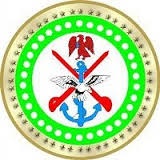
• The relocation of the Nigerian Military Command Centre to Maiduguri, since May 2015, contributed to the success in the fight against insurgency in the North Eastern part of the country.
• As at February 2016, the total number of persons rescued by the Nigerian troops during the ongoing operations in the North East came to 11,595
• Since December 2015, the well-motivated and rejuvenated Nigerian Military have regained all Nigerian territories previously under Boko Haram control.
• Prioritised regional cooperation in the fight against Boko Haram insurgency and violent extremism, through the operations of the 8,500 strong Multi-National Joint Task Force in N’Djamena, the capital of Chad, currently headed by a Nigeria military general.
• Nigeria has provided $21million USD to the Task Force since June 2015 and is committed to an additional $79 million USD, bringing the total of Nigeria’s commitment to the Task Force to 100 million USD.
• Cohesive international support in the fight against terrorism and assistance to victims and communities affected by terrorism, following President Buhari’s meeting with G7 leaders and other world powers.
• In May 2016, Nigeria hosted a Regional Security Summit to boost military operations against Boko Haram and forge a global support for the rehabilitation of the IDPs and rebuilding of the North East.
• In June 2015, the United States announced a 5-million-dollar support for the fight against the terrorists in the sub-region.
• In April 2016, during the visit to Ms Samantha Power, the U.S Ambassador to the UN to Nigeria, Cameroon and Chad, the U.S Government further announced an additional $40 million USD for humanitarian assistance in the sub-region
• Recruitment of additional 10,000 persons into the Nigeria Police Force is ongoing. The recruitment will address the manpower gap which currently exists in the Nigeria Police
• Overhaul of the dysfunctional topmost hierarchy of the Nigerian military which resulted in optimal result and degradation of the Boko Haram elements.
• Was able to bring back our hitherto military allies; which saw the United States and UK governments commit their resources to the fight against the insurgents after previously backing out of negotiations with the previous administration. The Israeli government has also indicated interest in the fight against insurgency.
• Introduction of the motorcycle battalion (This is so that the Nigerian Army can travel to remote areas that were not accessible to cars/trucks)
• Realigned our partnership with regional allies by embarking on foreign visits which resulted in bilateral and multilateral agreements to tackle insecurity back home.
• No more roadblocks and curfews, which normally impeded free flow of movement.
• Continuous monitoring of activities in the region of war through the use of satellite images and geographical information system is helping in fighting insurgency and strategizing against the enemy.
• The trips to our neighbouring countries showed the resolve of the President to push Boko Haram elements out of existence by going for the jugular of the group, cutting their arms, food supply routes. Support has thus been mobilised through the Multinational Joint Task Force.
• Another major stride is the Trans-National Organized Crime (TNOC) where the president got partnership with regional allies in the fight against the proliferation of Small Arms and Light Weapons.
• As part of the reconfigured military partnership, the United States donated 24 mine-resistant armoured vehicles (MRAP) which had protected the Nigerian troops from the menace of Improvised Explosive Devices. Today we have less causalities.
• Reached out to the G7 countries and achieved the following: intelligence sharing; technical military training; arms deals/donations
• Overhauling of NIMASA. A reversed policy of the past administration where national infrastructural assets were given to militia leaders to protect as against established bodies like the Nigerian Navy was stopped.
• The President Buhari government has drafted the army to partner with other security agencies in ensuring the security of our national infrastructure and this is already yielding the desired results.
• A major ring of pipeline vandals in Lagos state were captured recently in a joint operation by security forces led by the army.
• The government has renewed its fight against oil bunkering
• The Nigerian Navy has recorded tremendous success lately in apprehending vessels used by oil thieves. This operation has improved security on our water ways and it has also helped improve the revenue of government.
• Deployment of sophisticated weapons to ensure vandalism is contained by setting up a pipeline security force in stamping out the menace.
• Effective Management of the Separatist Biafran Movement
• Improving the technical capacity of Nigerian Police Force. We now have a forensic lab and GSM tracking device. We now have a more IT integrated Police force.
• Restructuring of Nigerian Immigration to stop cross-border crimes.
• NSCDC has become more proactive in the prevention of pipeline vandalization, with arrest of several pipeline vandals.
• Joint operations involving various security outfits in curbing the menace of the herdsmen in the country has been set up.
• The use of surveys and updated mappings across the country as strategies for preventing threats among ethnic groups in Nigeria.


